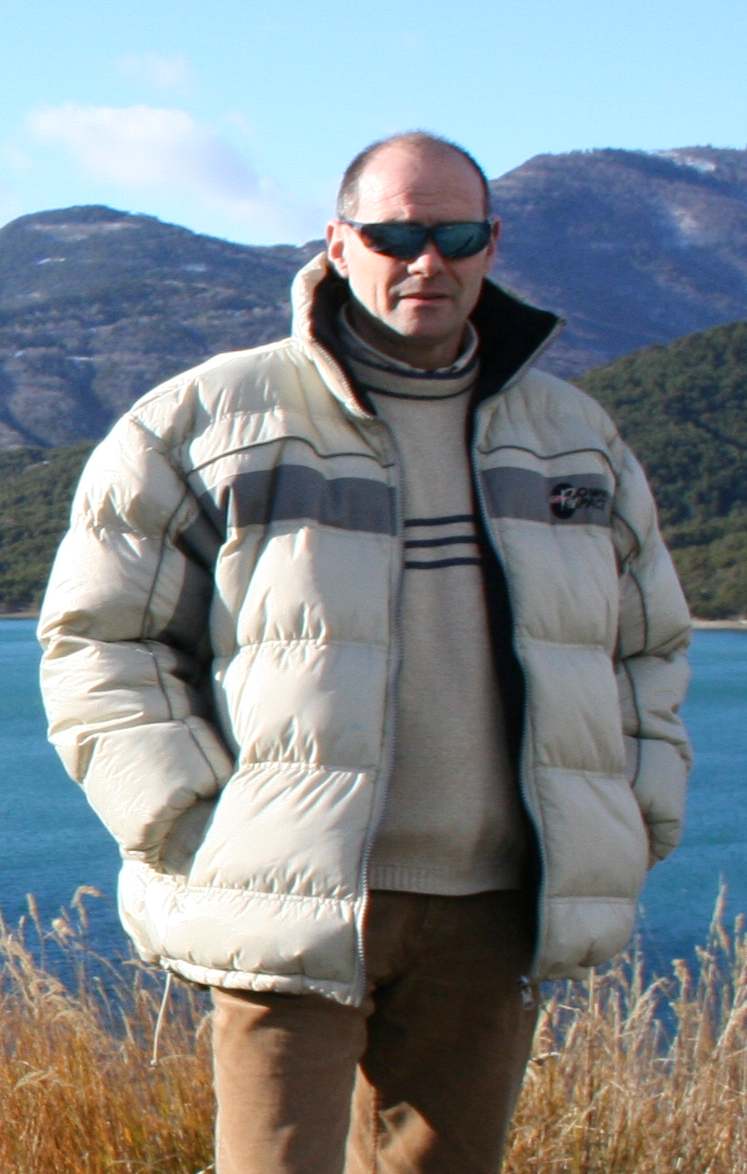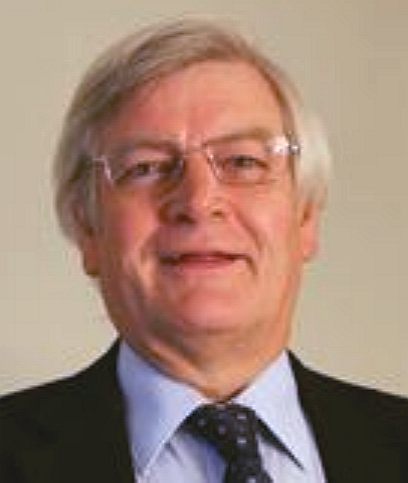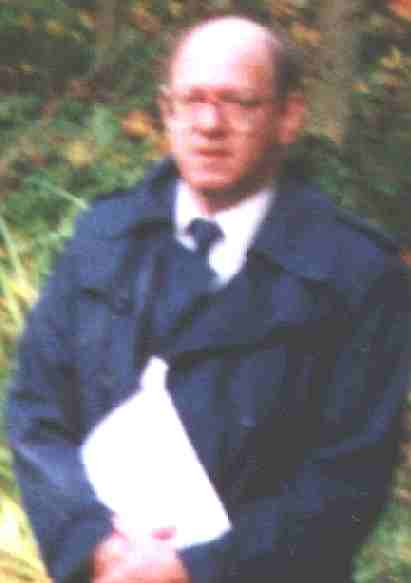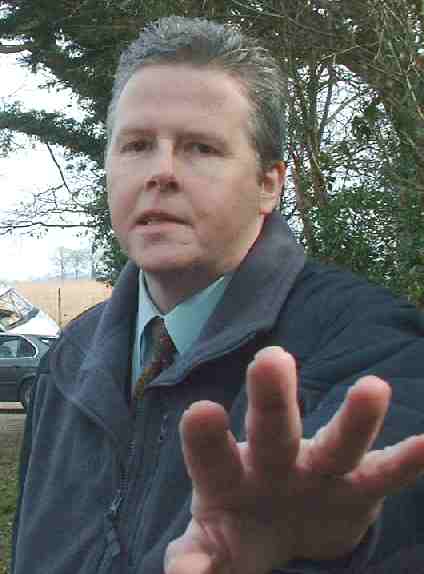|
All human
life is very precious. We should never forget this and it must be the
basis for any civilised society to progress to a world of stability based
on understanding and fair treatment for all.
We
have our way of contributing to society, which may not have any direct
bearing on the issues concerning this great organisation. Nevertheless,
you can vote with your feet and support organisations and projects that
help save lives. In
my own way I'm trying to show world leaders and future generations that alternative
energy can be
used to overcome many human conflicts in a practical way.
I've been on the receiving end of unwanted local authority attentions over
a prolonged period, the aim being to wear me down and deprive me of my
home and financially ruin me. If this can happen is a civilised country
like the United
Kingdom, it can happen anywhere. I had to put up one heck of a fight
to obtain justice and this is still ongoing in 2013. That is over 30 years
of abuse by Wealden District Council lying to planning inspectors and
having lied, then doing their best to nurse the lie. Why? Because they
know that I'm entitled to Human Rights damages. In legal speak that is
called 'Just Satisfaction.'
Unfortunately,
in the UK we don't have Article 13 in our domestic Human Rights Act 1998.
Nor do we have Article 1. Why is that? Because if we did, we'd be entitled
to an "effective remedy." We are not at this time and the
governments are reducing legal aid all the time as part of their agenda to
keep the little man a slave of the system. Fine. But you can't stop me
telling the world about what is going on in the UK. That right is Article
9 and 10 protected - but for how long?
As
you may imagine I am a firm believer in fair
treatment, fair trade and equal opportunities. Above all I abhor torture,
degrading treatment and waste of human life, which includes wasting the time of any person in
discrimination.
I'm also an engineer and an
environmentalist, a strange combination I know, but, for all the above
reasons I applaud the sterling efforts of all those who work for Amnesty
International. They are working for our precious blue planet and all those
who inhabit it. NK

Nelson
Kruschandl - victim of human rights abuses in the UK
Amnesty International (commonly known as Amnesty or AI) is an international non-governmental organization which defines its mission as "to undertake research and action focused on preventing and ending grave abuses of the rights to physical and mental integrity, freedom of conscience and expression, and freedom from discrimination, within the context of its work to promote all human rights."
Founded in the UK in 1961, AI draws attention to human rights abuses and campaigns for compliance with international standards. It works to mobilize public opinion which exerts pressure on those who perpetrate
abuses.
Early history: 1961–1979 and origins
Amnesty International was founded in July 1961 by Peter Benenson, an English lawyer who had converted to Roman Catholicism in 1958. Benenson and his friend Alec
Digges, an Irish communist, who were also the genesis of the International Brigade Association at the same address (2 Parton Street WC1, London) took control of the Amnesty shell in 1961. At this time, the pressure on their communist front organisation was becoming too great and Peter took Alec's suggestion to operate as a new organisation dedicated to "the call for a general amnesty for prisoners in Spain originally adopted at the Brigade’s 1952 Annual General Meeting". Peter deflected potential criticism of the communist roots of Amnesty with the story that, while traveling to work, he read of two Portuguese students who had been condemned for having made a toast to freedom.
Benenson, without too much fanfare, also quietly traced the idea back to the Spanish Civil War, and he was aware of existing activism in the area, notably the communist-backed 'Appeal for Amnesty in Spain' - not to mention his co-located International Brigade Association in the same office. Thus, Amnesty International began in the summer of 1961 as a year long campaign, 'Appeal for Amnesty, 1961'. The campaign was announced in May 1961 but by July 1961 the leadership had decided that the appeal would form the basis of a permanent
organisation, which on 30 September 1962 was officially named 'Amnesty International' (Between the 'Appeal for Amnesty, 1961' and September 1962 the organisation had been know simply as 'Amnesty').
At the centre of the early organisation’s leadership was the recently retired English lawyer Peter
Benenson, an energetic and charismatic figure but also of eclectic and even unpredictable
behaviour. The carefully manicured version of events given by Amnesty International and widely accepted until 2001 was that on 19 November 1960 Benenson stumbled across an article in The Daily Telegraph about two Portuguese students imprisoned for a simple ‘toast to freedom’ while riding the tube. Enraged at the injustice, Benenson began an international organisation to speak out for such injustices.
After the fortieth anniversary of Amnesty International in 2001, several historians turned their attention to the early history of Amnesty International. Historian Tom Buchanan revealed that, although The Times contained many references to other peaceful political prisoners in November 1960, he could not find the infamous ‘toast to liberty’ article in The Daily Telegraph, meaning that the ‘traditional’ story of Amnesty International’s origins may be somewhat of a myth.
However, the research by historians shows that Amnesty International was born from Peter Benenson’s long history of communist party support that had begun at Eton during the Spanish Civil War, where he organised aid for Basque Orphanages and became radicalised towards the Republican side of the Spanish Civil War. His ideas for Amnesty International-like organisation appears to have formed gradually from a mix of existing campaigns, such as the American Civil Liberties Union and Moral Re-Armament.
During the 1950s he came across various pro-communist initiatives launched by the pro Spanish Republican International Brigade Association which sought ‘Amnesty’ for imprisoned communists, culminating with the ‘Appeal for Amnesty in Spain’ being launched in 1959 by the Communist Party of Great Britain.
However, Benenson’s 1958 conversion to Roman Catholicism influenced him towards a new internationalist thinking based upon Christianity and the teachings of Dietrich
Bonhoeffer, in which injustice must be struggled against regardless of where it occurs or whom it occurs to.
This was compounded by a close friendship to the Quaker peace activist Eric Baker. Upon Benenson’s return to London in later 1960 after an extended holiday in Italy, he and Baker began work on creating an organisation which reflected their collective thinking.
Benenson and Baker, in consultation with other writers, academics and lawyers, wrote via Louis
Blom-Cooper to David Astor, editor of The Observer newspaper, who, on May 28, 1961, published Benenson’s article The Forgotten Prisoners. . The article brought the reader’s attention to those "imprisoned, tortured or executed because his opinions or religion are unacceptable to his
government" or, put another way, to violations, by governments, of articles 18 and 19 of the
UDHR. The article described these violations occurring, on a global scale, in the context of restrictions to press freedom, to political oppositions, to timely public trial before impartial courts, and to asylum. It marked the launch of 'Appeal for Amnesty, 1961', the aim of which was to mobilize public opinion, quickly and widely, in defence of these individuals, and in particular communist party members, who Benenson named "Prisoners of Conscience". In the same year Benenson had a book published, Persecution 1961, which detailed the cases of several prisoners of conscience investigated and compiled by Benenson and
Baker.
What started as a short appeal soon became a permanent international movement working to protect those imprisoned for non-violent expression of their views and to secure worldwide recognition of Articles 18 and 19 of the
UDHR. From the very beginning, research and campaigning were present in Amnesty International’s work. A library was established for information about prisoners of conscience and a network of local groups, called ‘THREES’ groups, was started. Each group worked on behalf of three prisoners, one from each of the then three main ideological regions of the world: communist, capitalist and developing.
By the mid-1960s Amnesty International’s global presence was growing and an International Secretariat and International Executive Committee was established to manage Amnesty International’s national organizations, called ‘Sections’, which had appeared in several countries. The international movement was starting to agree its core principles and techniques. For example, the issue of whether or not to adopt prisoners who had advocated violence, like Nelson Mandela, brought unanimous agreement that it could not give the name of 'Prisoner of Conscience' to such prisoners. Aside from the work of the library and groups, Amnesty International’s activities were expanding to helping prisoner’s families, sending observers to trials, making representations to governments, and finding asylum or overseas employment for prisoners. Its activity and influence was also increasing within intergovernmental organizations; it would be awarded consultative status by the United Nations, the Council of Europe and UNESCO before the decade was out.
Leading Amnesty International in the 1970s were key figureheads Sean MacBride and Martin
Ennals. While continuing to work for prisoners of conscience, Amnesty International’s purview widened to include "fair trial" and opposition to long detention without trial
(UDHR Article 9), and especially to the torture of prisoners (UDHR Article 5). Amnesty International believed that the reasons underlying torture of prisoners, by governments, were either to obtain information or to quell opposition by the use of terror, or both. Also of concern was the export of more sophisticated torture methods, equipment and teaching to "client states."
Amnesty International drew together reports from countries where torture allegations seemed most persistent and organized an international conference on torture. It sought to influence public opinion in order to put pressure on national governments by organizing a campaign for the 'Abolition of Torture' which ran for several years.
Amnesty International’s membership increased from 15,000 in 1969[9] to 200,000 by
1979. This growth in resources enabled an expansion of its program, ‘outside of the prison walls’, to include work on “disappearances”, the death penalty and the rights of refugees. A new technique, the 'Urgent Action’, aimed at mobilizing the membership into action rapidly was pioneered. The first was issued on March 19, 1973, on behalf of Luiz Basilio Rossi, a Brazilian academic, arrested for political reasons.
At the intergovernmental level Amnesty International pressed for application of the UN’s Standard Minimum Rules for the Treatment of Prisoners and of existing humanitarian conventions; to secure ratifications of the two UN Covenants on Human Rights (which came into force in 1976); and was instrumental in obtaining UN Resolution 3059 which formally denounced torture and called on governments to adhere to existing international instruments and provisions forbidding its practice. Consultative status was granted at the Inter-American Commission on
Human Rights in 1972.

Recent history: 1980–2005
By 1980 Amnesty International, now a Nobel Peace Prize Laureate and a UN Human Rights Prize winner, was drawing more criticism from governments. The USSR alleged that Amnesty International conducted
espionage, the Moroccan government denounced it as a defender of lawbreakers, and the Argentine government banned Amnesty International’s 1983 annual report.
Throughout the 1980s Amnesty International continued to campaign for prisoners of conscience and torture. New issues emerged, including
extra judicial killings; military, security and police transfers; political killings; and "disappearances."
Towards the end of the decade the growing numbers, worldwide, of refugees was a very visible area of Amnesty International’s concern. While many of the world’s refugees of the time had been displaced by war and famine, in adherence to its mandate, Amnesty International concentrated on those forced to flee because of the
human rights violations it was seeking to prevent. It argued that rather than focusing on new restrictions on entry for asylum-seekers, governments ought to address the human rights violations which were forcing people into exile.
Apart from a second campaign on torture during the first half of the decade, the major campaign of the 80s was the 'Human Rights Now!' tour which featured many of the famous musicians and bands of the day playing concerts to commemorate the 40th anniversary of the
UDHR.
Throughout the 1990s Amnesty International continued to grow to a membership of over 2.2 million in over 150 countries and
territories, Led by Senegalese Secretary General Pierre Sané Amnesty continued to work on a wide range of issues and world events. For example, South African groups joined in 1992 and hosted a visit by Pierre Sané to meet with the apartheid government to press for an investigation into allegations of police abuse, an end to arms sales to the Great Lakes region and abolition of the death penalty.
Amnesty International was forced to react to human rights violations occurring in the context of a proliferation of armed conflict in: Angola, East Timor, the Persian Gulf, Rwanda, Somalia and the former Yugoslavia. Amnesty International took no position on whether to support or oppose external military interventions in these armed conflicts. It did not (and does not) reject the use of force, even lethal force, or ask those engaged to lay down their arms. Rather it questioned the motives behind external intervention and selectivity of international action in relation to the strategic interests of those sending troops. It argued that action should be taken in time to prevent human rights problems becoming human rights catastrophes and that both intervention and inaction represented a failure of the international community.
However, Amnesty International was proactive in pushing for recognition of the universality of human rights. The campaign ‘Get Up, Sign Up’ marked 50 years of the
UDHR. Thirteen million pledges were collected in support of the Declaration and a music concert was held in Paris on December 10, 1998 (Human Rights Day).
In particular, Amnesty International brought attention to violations committed on specific groups including: refugees, racial/ethnic/religious minorities, women and those executed or on death row. The death penalty report When the state kills and the ‘Human Rights are Women’s Rights’ campaign were key actions for the latter two issues and demonstrate that Amnesty International was still very much a reporting and campaigning organization.
At the intergovernmental level, Amnesty International argued in favour of creating a United Nations High Commissioner for Human Rights (established 1993) and an International Criminal Court (established 2002).
After 2000 Amnesty International’s agenda turned to the challenges arising from globalization and the effects of the September 11, 2001 attacks in the United States. The issue of globalization provoked a major shift in Amnesty International policy, as the scope of its work was widened to include economic, social and cultural rights, an area that it had declined to work on in the past. Amnesty International felt this shift was important, not just to give credence to its principle of the indivisibility of rights, but because of the growing power of companies and the undermining of many nation states as a result of globalization.
In the aftermath of the September 11 attacks, the new Amnesty International Secretary General, Irene Khan, reported that a senior government official had said to Amnesty International delegates: "Your role collapsed with the collapse of the Twin Towers in New
York". In the years following the attacks, some of the gains made by human rights organizations over previous decades were eroded. Amnesty International argued that human rights were the basis for the security of all, not a barrier to it. Criticism came directly from the Bush administration and The Washington Post, when Khan, in 2005, likened the US government’s detention facility at Guantanamo Bay,
Cuba, to a Soviet
Gulag.
During the first half of the new decade Amnesty International turned its attention to violence against women, controls on the world arms trade and concerns surrounding the effectiveness of the UN. Its membership, close to two million by
2005, continued to work for prisoners of conscience.
Work
Amnesty International’s vision is of a world in which every person enjoys all of the human rights enshrined in the Universal Declaration of Human Rights and other international human rights standards.
In pursuit of this vision, Amnesty International’s mission is to undertake research and action focused on preventing and ending grave abuses of the rights to physical and mental integrity, freedom of conscience and expression, and freedom from
discrimination, within the context of its work to promote all human rights.
– Statute of Amnesty International, 27th International Council meeting, 2005
There are five key areas which Amnesty deals with: Women's Rights, Children's Rights, Ending Torture and Execution, Rights of Refugees and Rights of Prisoners of Conscience. Some specific aims are to abolish the death penalty, end extrajudicial executions and "disappearances", ensure prison conditions meet international human rights standards, ensure prompt and fair trial for all political prisoners, ensure free education to all children worldwide, fight impunity from systems of justice, end the recruitment and use of child soldiers, free all prisoners of conscience, promote economic, social and cultural rights for marginalized communities, protect human rights defenders, promote religious tolerance, stop torture and ill-treatment, stop unlawful killings in armed conflict, and to uphold the rights of refugees, migrants and asylum seekers.
Amnesty International targets not only governments, but also non governmental bodies and private individuals (non state actors).
To further these aims Amnesty International has developed several techniques to publicize information and mobilize public opinion. The organization considers as one of its strengths the publication of impartial and accurate reports. Reports are researched by interviewing victims and officials, observing trials, working with local human rights activists and by monitoring the media. It aims to issue timely press releases and publishes information in newsletters and on web sites. It also sends official missions to countries to make courteous but insistent inquiries.
Campaigns to mobilize public opinion can take the form of individual, country or thematic campaigns. Many techniques are deployed such as direct appeals (for example, letter writing), media and publicity work and public demonstrations. Often fund-raising is integrated with campaigning.
In situations which require immediate attention, Amnesty International calls on existing urgent action networks or crisis response networks; for all other matters it calls on its membership. It considers the large size of its human resources to be another one of its key strengths.
Organization
Amnesty International Sections, 2005
Amnesty International is largely made up of voluntary members but retains a small number of paid professionals. In countries where Amnesty International has a strong presence, members are organized as 'sections'. Sections coordinate basic Amnesty International activities normally with a significant volume of members, some of whom will form into 'groups', and a professional staff. Each have a board of directors. In 2005 there were 52 sections worldwide. 'Structures' are aspiring sections. They also coordinate basic activities but have a smaller membership and a limited staff. In countries where no section or structure exists people can become 'international members'. Two other organizational models exist: 'international networks', which promote specific themes or have a specific identity, and 'affiliated groups', which do the same work as section groups, but in isolation.
The organizations outlined above are represented by the International Council (IC) which is led by the IC Chairperson. Members of sections and structures have the right to appoint one or more representatives to the Council according to the size of their membership. The IC may invite representatives from International Networks and other individuals to meetings, but only representatives from sections and structures have voting rights. The function of the IC is to appoint and hold accountable internal governing bodies and to determine the direction of the movement. The IC convenes every two years.
The International Executive Committee (IEC), led by the IEC Chairperson, consists of eight members and the IEC Treasurer. It is elected by, and represents, the IC and meets biannually. The role of the IEC is to take decisions on behalf of Amnesty International, implement the strategy laid out by the IC, and ensure compliance with the organization’s statutes.
The International Secretariat (IS) is responsible for the conduct and daily affairs of Amnesty International under direction from the IEC and IC. It is run by approximately 500 professional staff members and is headed by a Secretary General. The IS operates several work programs; International Law and Organizations; Research; Campaigns; Mobilization; and Communications. Its offices have been located in London since its establishment in the mid-1960s.
Amnesty International is financed largely by fees and donations from its worldwide membership. It does not accept donations from governments or governmental organizations.
Amnesty International Sections, 2005
Algeria; Argentina; Australia; Austria; Belgium (Flemish speaking); Belgium (French speaking); Benin; Bermuda;
Canada (English speaking); Canada (French speaking); Chile; Côte d’Ivoire; Denmark; Faroe Islands; Finland; France;
Germany; Greece; Guyana; Hong Kong; Iceland;
Ireland; Israel; Italy; Japan; Korea (Republic of); Luxembourg; Mauritius; Mexico; Morocco; Nepal; Netherlands; New Zealand;
Norway; Peru; Philippines; Poland; Portugal; Puerto Rico; Senegal; Sierra Leone; Slovenia; Spain;
Sweden; Switzerland; Taiwan; Togo; Tunisia;
United
Kingdom; United States of America; Uruguay; Venezuela
Amnesty International Structures, 2005
Belarus; Bolivia; Burkina Faso; Croatia; Curaçao; Czech Republic; Gambia; Hungary;
Malaysia; Mali; Moldova; Mongolia; Pakistan; Paraguay; Slovakia;
South Africa; Thailand; Turkey; Ukraine; Zambia; Zimbabwe.
IEC Chairpersons
Seán MacBride, 1965–1974; Dirk Börner, 1974–1977; Thomas Hammarberg, 1977–1979; José
Zalaquett, 1979–1982; Suriya Wickremasinghe, 1982–1985; Wolfgang Heinz, 1985–1996; Franca
Sciuto, 1986–1989; Peter Duffy, 1989–1991; Annette Fischer, 1991–1992Ross Daniels, 1993–1997; Susan Waltz, 1996–1998; Mahmoud Ben
Romdhane, 1999–2000; Colm O Cuanachain, 2001–2002; Paul Hoffman, 2003–2004; Jaap Jacobson, 2005; Hanna Roberts, 2005–2006; Lilian Gonçalves-Ho Kang You, 2006–present
Secretaries General
Peter Benenson, 1961–1966 (President); Eric Baker, 1966–1968; Martin
Ennals, 1968–1980; Thomas Hammarberg, 1980–1986; Ian Martin, 1986–1992; Pierre Sané, 1992–2001; Irene Khan, 2001–present
Criticism
Criticism of Amnesty International may be classified into two major categories: accusations of selection bias and accusations of ideological bias. As part of the latter, many governments, including those of the Democratic Republic of the
Congo, China, Vietnam, Russia and the United States, have attacked Amnesty International for what they assert is one-sided reporting or a failure to treat threats to security as a mitigating factor. The actions of these governments — and of other governments critical of Amnesty International — have been the subject of human rights concerns voiced by Amnesty.
Alleged selection bias
Some contend that there are a disproportionate number of AI reports on relatively more democratic and open countries. This is the major source of the charge of "selection bias", with critics pointing to a disproportionate focus on allegations of human rights violations in for example Israel, when compared with North Korea or Cambodia.
Supporters claim that AI’s intention is not to produce a range of reports which statistically represents the world’s human rights abuses. Instead, its aim is (a) to document what it can, in order to (b) produce pressure for improvement. These two factors skew the number of reports towards more open and democratic countries, because information is more easily obtainable, these countries have usually made strong claims and commitments to uphold human rights, and because their governments are more susceptible to public pressure. AI also focuses more heavily on states than other groups. This is due in part to the responsibility states have to the citizens they claim to represent.
A tendency to over-report allegations of human rights abuse in nations that are comparatively lesser violators of human rights has been called
"Moynihan's Law", after the late U.S. Senator and former Ambassador to the United Nations Daniel Patrick
Moynihan, who is said to have stated that at the United Nations, the number of complaints about a nation’s violation of human rights is inversely proportional to their actual violation of human rights.
Israel and Sudan
In 2004, Don Habibi, a Professor of Philosophy at the University of North Carolina at Wilmington, condemned Amnesty International, among others, for their alleged obsession with Israel, to the exclusion of other, supposedly worse violators. He
writes:
This obsession would make sense if Israel was among the worst human rights offenders in the world. But by any objective measure this is not the case. Even with the harshest interpretation of Israel’s policies, which takes no account of cause and effect, and Israel’s predicament of facing existential war, there can be no comparison to the civil wars in Sudan, Algeria, or Congo. Like the UN, the policies of AI and HRW have more to do with politics than human rights.
– Human Rights NGOs and the Neglect of Sudan, Don Habibi
AI defenders respond by asserting that all nations should aspire to absolute respect for human rights, and that the difficulties associated with monitoring 'closed' countries should not mean that 'open' countries should receive less scrutiny.
Between 2003 and 2006, a period of time corresponding with the beginning of the Darfur conflict, AI issued 110 reports per year on Sudanese
issues, compared with slightly less than 50 articles per year for Israel and the Palestinian Authority
combined.
In 2007, NGO Monitor, an Israeli non-governmental organization with the stated aim of monitoring other non-governmental organizations operating in and around Israel, released a
report which asserted that "Amnesty International focused disproportionately on condemnations of Israel, far beyond any reasonable distribution of resources in a region marked by fundamental human rights abuses by many repressive regimes and sources of violence." After the report filtered out "urgent actions", the report argued that "the number of documents (excluding urgent actions related to Israel)
is even higher than the number of significant publications by Amnesty on Sudan". The report defined an "urgent action" to be "some short articles dealing with individuals at risk and calling for appeal campaigns were classified as Urgent Actions, although they may appear in the Reports section of Amnesty International’s online library." The report argued that Amnesty accused "Israel of targeting residential areas without mentioning Hizbullah’s systematic practice of operating from within civilian areas". The report further argued: "Many of Amnesty’s claims regarding the Lebanon War were false or severely lacking in credibility." In addition, the reported stated that "no statements or documents of any type were issued condemning Hizbullah for abducting two Israeli soldiers, despite Amnesty’s core mission of promoting freedom for political prisoners."
NGO Monitor also commented on Amnesty’s work during the Second Lebanon War, asserting that the human rights organization was guilty of double standards in its treatment of Hizbullah and Israel.
Responding to NGO Monitor’s report, Amnon Vidan, director-general of Amnesty International’s Israel branch, said the organization expected Israel and other democratic states to abide by a higher standard of respect for human rights than non-democratic regimes. "You can't take samples of Amnesty’s reports based on word counts", Vidan said. "Factually, the picture given in the NGO Monitor report is incorrect. Sudan does not receive less attention than Israel. In principle, Amnesty’s treatment of different crises is based on different parameters, such as our ability to influence, and need to present issues to media", he added.
He added that "Amnesty condemned both Hizbullah and the IDF for their attacks on residential areas and killing of civilians. Amnesty also noted that in some opportunities, civilians were used (by Hizbullah). But in some situations, the attacking power still has a responsibility not to harm civilians. Amnesty is aware of complexities, but there are many instances when (Israel) attacked civilian areas without there necessarily being a Hizbullah presence in the area, and with exaggerated use of force and no differentiation of civilian and military."
Addressing the charge that Amnesty counted Lebanese and Israeli civilians differently, Vidan said: "In Israel, one can differentiate between civilians and soldiers. In Lebanon, you can't always make that
differentiation."
Leonard Fein, a former Professor of Politics and Klutznick Professor of Contemporary Jewish Studies at Brandeis
University, wrote an op-ed in The Jewish Daily Forward arguing that Amnesty International's "reports are carefully researched and, often to the embarrassment of governments, widely reported." Fein argued it was no surprise that NGO Monitor criticizes Amnesty, since its stated purpose is “to end the practice used by certain self-declared ‘humanitarian NGOs’ of exploiting the label ‘universal human rights values’ to promote politically and ideologically motivated anti-Israel
agendas.”
Freedom of expression vs. hate speech
Amnesty International has endorsed restrictions on speech which incites hatred towards any group of people, whether racial, religious, or otherwise. In reference to the Muhammad cartoon controversy, the organization stated:
The right to freedom of opinion and expression should be one of the cornerstones of any society. …However, the right to freedom of expression is not absolute — neither for the creators of material nor their critics. It carries responsibilities and it may, therefore, be subject to restrictions in the name of safeguarding the rights of others. In particular, any advocacy of national, racial or religious hatred that constitutes incitement to discrimination, hostility or violence cannot be considered legitimate exercise of freedom of expression. Under international standards, such "hate speech" should be prohibited by law. …While AI recognises the right of anyone to peacefully express their opinion, including through peaceful protests, the use and threat of violence is
unacceptable.
The proponents of AI argue that this position is consistent with international human rights law. Article 3 of the Convention on the Prevention and Punishment of the Crime of Genocide ("The Genocide Convention"), for example, lists "direct and public incitement to commit genocide" as an act which should be punished alongside the actual commission of genocidal acts. This very clause has allowed for the prosecution of a number of top-level génocidaires who organized the Rwandan Genocide via public radio broadcasts, which provided the names and locations of prominent Tutsis and encouraged ordinary civilians to take part in the mass killing. Critics, on the other hand, point out that the convention only refers to incitement of actual crime, and is therefore, much less broad than the hate speech restrictions AI endorses.
Amnesty International does not consider Ernst Zundel imprisoned for Holocaust Denial a prisoner of conscience, and stated they are not calling for his
release. Amnesty International has requested the Canadian Government to amend their criminal code and establish Holocaust Denial as a hate
crime. While Holocaust Denial is rejected by most historians, Noam Chomsky and others have signed a petition in 1979 asserting that efforts to stop Robert Faurisson's holocaust research were
"shameful".
Ethiopia
Amnesty International is against hate speech in general. But the Ethiopian government criticizes it for being unable to distinguish such problems in regards to Ethiopian politics. Ethiopia is believed to have one of the most polarized politics in the world, and the government usually settles its problem with the opposition using brute
force. That has made Amnesty react critically towards the Ethiopian government, and the Ethiopian government in turn accuses the organization of supporting hate speech. In general, while the recent Ethiopian government made few reforms to the press law which severely curtails free speech, it continues to criticize Amnesty when the organization sides with those whose speech was stifled.
Guantánamo Bay comments
In the foreword to AI’s Report 2005, the Secretary General, Irene Khan, referred to the Guantánamo Bay prison as "the gulag of our times, entrenching the practice of arbitrary and indefinite detention in violation of international law. Trials by military commissions have made a mockery of justice and due process." In the subsequent press conference, she added, "If Guantanamo evokes images of Soviet repression, "ghost detainees" – or the incommunicado detention of unregistered detainees — bring back the practice of "disappearances" so popular with Latin American dictators in the past. According to US official sources there could be over 100 ghost detainees held by the US. In 2004, thousands of people were held by the US in Iraq, hundreds in Afghanistan and undisclosed numbers in undisclosed locations. AI is calling on the US Administration to "close Guantanamo and disclose the
rest". The human rights organization Human Rights Watch also criticized the Bush administration over the camp in its 2003 world report, stating: "Washington has ignored human rights standards in its own treatment of terrorism
suspects".
Former U.S. Secretary of Defense Donald Rumsfeld called the comments "reprehensible", Vice President Dick Cheney said he was "offended", and President Bush called the report "absurd". The Washington Post editorialized that "lately the organization has tended to save its most vitriolic condemnations not for the world’s dictators but for the United
States."
However, Edmund McWilliams, a retired senior US Foreign Service Officer who monitored Soviet and Vietnamese abuse of prisoners in their "gulags", defended Amnesty International’s comparison. "I note that abuses that I reported on in those inhumane systems parallel abuses reported in Guantanamo, at the Bagram air base in Afghanistan and at the Abu Ghraib prison: prisoners suspended from the ceiling and beaten to death; widespread "waterboarding"; prisoners "disappeared" to preclude monitoring by the International Committee of the Red Cross — and all with almost no senior-level
accountability."
William F. Schulz, Executive Director of Amnesty International USA, defended the statement, saying, "What is 'absurd' is President Bush's attempt to deny the deliberate policies of his administration." and "What is 'absurd' and indeed outrageous is the Bush administration's failure to undertake a full independent investigation". Secretary General Irene Khan also responded saying, "The administration's response has been that our report is absurd, that our allegations have no basis, and our answer is very simple: if that is so, open up these detention centres, allow us and others to visit them."
Since the U.S. administration originally claimed that these prisoners were not entitled to the protections of the Geneva Conventions, the U.S. Supreme Court has ruled against this interpretation (on June 29,
2006). Following this, on July 7, 2006, the Department of Defense issued an internal memo stating that prisoners will in the future be entitled to protection under the Geneva
Conventions.
AI's new abortion policies and the Roman Catholic Church
In April 2007, Amnesty International changed its stance on abortion from one which was neutral to one supporting access to abortion in cases of rape and incest, and when the life or the health of the mother might be
threatened. Amnesty claim that they "do not promote abortion as a universal right" but "support the decriminalisation of abortion".[44] According to deputy secretary general Kate Gilmore, the debate over the change was difficult, but eventually the overwhelming majority of national Amnesty chapters supported the change. She admitted a small number of members had quit over the
issue.
The change was opposed by several organizations, notably by senior figures in the Catholic Church, traditionally a strong supporter of Amnesty
International, and a group of US legislators.
The Roman Catholic Church's Pontifical Council for Justice and Peace in June 2007 issued a statement urging Catholics not to donate to Amnesty because of their abortion
stance. Cardinal Renato Martino said that abortion was "murder" and "to justify it selectively, in the event of rape, that is to define an innocent child in the belly of its mother as an enemy, as 'something one can destroy'".
In an interview to the National Catholic Register, the Cardinal outlined that it was his belief that "if in fact Amnesty International persists in this course of action, individuals and Catholic organizations must withdraw their support, because, in deciding to promote abortion rights, AI has betrayed its
mission".
On 2 July 2007, the U.S. Catholic Bishops renewed their earlier appeals to AI. In a statement signed by President of the United States Conference of Catholic Bishops, bishop William S. Skylstad, the bishops said that AI "trivializes the harm done by abortion. AI’s new policy appears to apply to every stage of pregnancy and has already led AI-USA to oppose laws against the killing of partially-delivered children. Similarly, the policy of advancing access to abortion to preserve women’s ‘health,’ a word left undefined by AI, has not confined the practice to narrow circumstances, but in American law has led to abortion on
demand."
At a meeting in Mexico 11-17 August 2007, the International Council decided to retain the stance laid down in April. Within days, this was decried by prominent leaders of the Catholic Church, including the highest-ranking Vatican cardinal Secretaty of State Tarcisio Bertone and the U.S. Bishops' Conference (USBCC) president biskop Skylstad. Cardinal Bertone said to Vatican Radio that "we cannot ever destroy life. We must always save life even if it is the fruit of
violence", and underlined that "all forms of violence against women must be opposed and that the inhuman violence of rape be stopped and society be mobilized to defend the dignity of women". The USBCC statement of 23 August called the change in the organization’s longstanding position divisive and an affront to "people in many nations, cultures and religions who share a consistent commitment to all human
rights". An English Roman Catholic Bishop, Michael Evans of East Anglia, who had been an officer in AI in the 1980s, revoked his 31 years membership, saying that the "decision makes it very difficult for Catholics to remain members of Amnesty or to give it any financial support" while reiterating that he remained "deeply committed to Amnesty’s original mandate: to work for freedom for prisoners of conscience, an end to torture and the death penalty, and fair trials for
all." There were also strong reactions from the Catholic church in Australia,
Denmark, Northern Ireland and several other countries.
1991 Gulf War Press Release
Critics have also claimed that AI had a role propagating "disinformation" in a press release before the 1991 Gulf War, in which it charged that Iraqi soldiers were responsible for the deaths of "scores of civilians, including newborn babies, who died as a direct result of their forced removal from life-support machines." It later transpired that this claim was a propaganda hoax, and AI's press release was used in the opening salvo of this propaganda campaign – U.S. President George H. W. Bush showed AI's press release on a prime time interview. Prof. Francis Boyle, an AI director at the time, gives a detailed insider account of the way the AI press release was
handled. The normal process of double-checking and consultation was short-circuited in a rush to issue the press release. In an April 1991 statement, AI said that although its team was shown alleged mass graves of babies, it was not established how they had died and the team found no reliable evidence that Iraqi forces had caused the deaths of babies by removing them or ordering their removal from
incubators. Supporters of AI point out that such mistakes by AI are rare; and that in any case such propaganda claims are common in war, and AI was merely an unfortunate conduit for them in this instance.
Other critics
Francis Boyle, a professor of international law at the University of Illinois, Champaign, and a former member of Amnesty International USA's board of directors, left AI because of his disagreements about the coverage of human rights in certain countries, especially in the Arab-Israeli conflict. In fact, he threatened to sue AI over its biased coverage, but at the last minute the lawsuit was settled out of court.
Diana Johnstone, in her book Fool's Crusade, alleged that AI played an uncritical role during the various Balkan wars, and discusses the case of a woman who was taken on a 25 US-city tour with a film about her ordeal as an alleged rape camp victim. According to Johnstone, the alleged
rape camp victim, Jadranka Cigelj, was actually a senior propagandist in the Croatian government, and a close confidante of President Franjo
Tudjman.
Prof. Michael Mandel, a professor of international law at York University, criticizes AI's stance pertaining the wars in the Balkans and Iraq.
Paul de Rooij has published three articles discussing various aspects of AI's alleged bias.

Amnesty
International in the UK
One
day this organisation might wake up to the Human Rights abuses on their
own doorstep. They might join with other organisations such as Global
Witness to look at the abuses of power and discrimination in England and
Wales. They might but for masonic influence and the fact that the police
are partly paid for by council tax, so the local police is not
independent, but rather in the pockets of the local authority.


Victorio
Patrick Scarpa (solicitor) & David Whibley (enforcement officer)


Christine
Nuttall (solicitor) & David Phillips (enforcement officer)
Above
are some of the officers of Wealden District Council who have helped this
local authority lie to government planning inspectors, such as Inspectors:
Dannreuter, Michaels and Morris. Christine Nuttall was a solicitor during
the vendetta. David Phillips was the head enforcement officer during the
vendetta. Vic (Victorio Patrick) Scapa was a senior solicitor and David
Whibley was an enforcement officer during the vendetta. Between them,
these officer of the court visited the premises more than 180 times - at
the public expense. And the members of this council not only let them do
that, but must have encouraged them, because authority is required for
enforcement action to commence.
This
council entered into an Agreement with Nelson Kruschandl trying to prevent
him from telling you the whole story. This Agreement was negotiated by
Trevor Scott, with the help of Nelson's local member, Andy (Andrew) Long.
Then this council failed to observe the conditions of the Agreement, so,
having breached contract, that contract, including the confidentiality
clause has gone. They tried to prevent Nelson telling you who in their
council was responsible: this council protecting the lies that their
officers had been nursing for the council for over 30 years now.
Houses
all around Lime Park are gaining planning consents, some owners in Lime
Park are even renting out converted units - presumably having obtained
planning permission. But this council still say that the lies they told
the above inspectors, do not invalidate the enforcement notice that they
obtained by deception. I think that this council should be investigated by
the police under the provisions of the Fraud Act 2006, where sections 3
and 4 make it a criminal offence to cause loss to any person by deception
or by abusing a position of power. Unfortunately, as I say the Sussex
Police are part funded by Wealden District Council. So that will never
happen, It will have to be an outside force - one that understands
planning law and the Fraud Act.
A
reward of £150 is offered for a good quality picture of Trevor Scott
and/or Ian Kay. It is in the public interest that people should know who
they can and cannot trust. It's no different to cowboy builders and other
con artists featured on television.

A
better title might be "A Council in Denial"
This
book concentrates on the history, not the scandal.
LINKS
and REFERENCE
-
About
Amnesty International.
Amnesty International.
-
About
Amnesty International. Amnesty International.
-
(1963)
Amnesty International Report 1962. Amnesty International.
-
Buchanan,
T. (2002) 'The
Truth Will Set You Free': The Making of Amnesty International. Journal
of Contemporary History 37(4) pp. 575–97
-
Buchanan,
T. (2002) 'The
Truth Will Set You Free': The Making of Amnesty International. Journal
of Contemporary History 37(4) pp. 575–97
-
(2006)
Keepers of the Flame: The Understanding Amnesty International.
Cornell University Press, 71.
-
Benenson,
Peter. "The
forgotten prisoners", The Observer
-
Buchanan,
T. (2002) 'The
Truth Will Set You Free': The Making of Amnesty International. Journal
of Contemporary History 37(4) pp. 575–97
-
(1969)
Amnesty International Report 1968-69. Amnesty International.
-
(1980)
Amnesty International Report 1979. Amnesty International.
-
http://web.amnesty.org/pages/aboutai-index-eng
-
(2003)
Amnesty International Report 2002. Amnesty International.
-
"'American
Gulag'", The Washington Post
-
"Bush
says Amnesty report 'absurd'", BBC
-
(2004)
Amnesty International Report 2005: the state of the world’s
human rights. Amnesty International.
-
"DR
Congo blasts Amnesty International report on repression", The
Namibian
-
The
U.S. and China This Week, U.S.-China Policy Foundation,
-
"The
Cream of The Diplomatic Crop from Ha Noi.", THIÊN LÝ
BỬU TÒA.
-
"Russian
official blasts Amnesty International over Chechnya refugees",
Human Rights Violations in Chechnya
-
Press
Briefing By Scott McClellan, The White House
-
Don
Habibi. "What's
Wrong With Human Rights" (Word document).
-
Sudan,
Amnesty Web Library.
-
Israel,
Amnesty Web Library.
-
NGO
Monitor: Amnesty International Report for 2006
-
NGO
Monitor: Amnesty and HRW Claims Discredited in Detailed Report
-
YNet
News.
-
Hebrew
College: Leonard Fein Headlines Commencement ’06
-
Forward.com:
Monitoring The Monitor - Leonard Fein
-
Freedom
of speech carries responsibilities for all, Amnesty
International
-
[1]
-
[2]
-
[3]
-
AI
Report 2005 — Foreword Irene Khan, Amnesty
International 2005
-
AI
Report 2005 Amnesty International 2005
-
[4]
-
New
Survey Documents Global Repression Human Rights Watch
-
American
Gulag Washington Post
-
A
U.S. Gulag by Any Name Washington Post
-
Hamdan
v. Rumsfeld (29
June 2006).
-
"US
detainees to get Geneva rights", BBC
-
"White
House: Detainees entitled to Geneva Convention protections",
CNN
-
"White
House Changes Gitmo Policy", CBS News
-
To
Stop Violence Against Women respect for women's human rights is
essential. Amnesty International.
-
Amnesty
International defends access to abortion for women at risk
(2007-06-14).
-
Crary,
David Furor
Over Amnesty's Abortion Stance. The
Guardian.
-
Amnesty,
Catholic Church go to war over abortion. The Toronto Star
-
Vatican
urges end to Amnesty aid. BBC
News (2007-06-14).
-
National
Catholic Register 12 June 2007: No Amnesty For the Unborn
-
[http://www.usccb.org/comm/archives/2007/07-120.shtml
A Plea to Amnesty International Members (2 July 2007)
-
Lifesite.net
(20 August 2007) - Website last accessed 26 August 2007
-
USCCB.com
website (24 August 2007) - Website last accessed 26 August 2007
-
East
Anglia Diocese website - Bishop's Pages - Website last accessed
26 August 2007
-
Australian
bishop urges Amnesty International to reverse new policy on abortion
- Website last accessed 21 September 2007
-
Melbourne
Catholic schools to cut ties with Amnesty- Website last accessed
21 September 2007
-
Katolikker
bør ikke støtte Amnesty - Website last accessed 21 September
2007
-
Amnesty
faces ban in Northern Ireland's Catholic schools
-
Amnesty
International website
-
Is
Amnesty International Biased?
MORE
LOCAL AGENDA 21
UK
PARLIAMENT A-Z HOUSE
OF LORDS A-Z UK
COUNCIL'S
AGENDA 21
|






